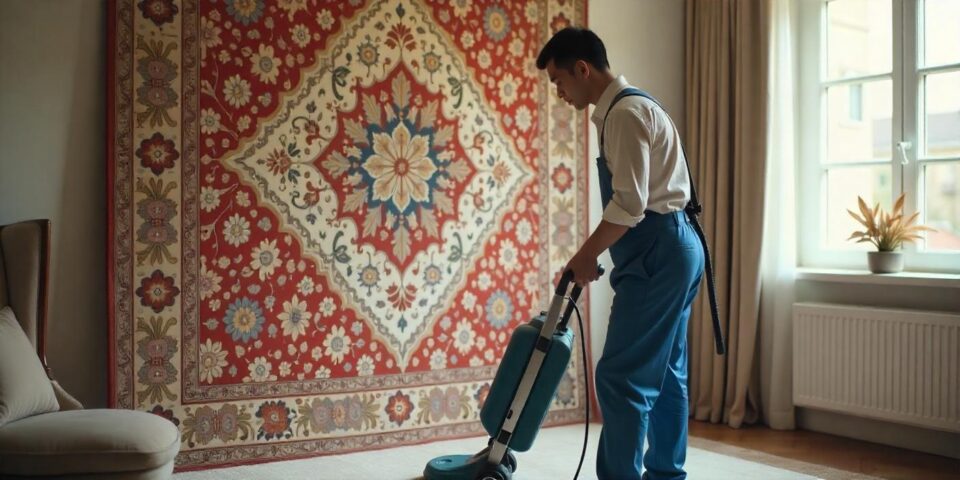Many seek ways to reduce our carbon footprint as we become more conscious of the environment and its delicate balance. Carpet cleaning, while essential for maintaining a clean and healthy home, can be a source of environmental impact if not done thoughtfully. Traditional carpet cleaning methods often involve harsh chemicals, water wastage, and energy-intensive machinery. However, numerous eco-friendly alternatives can help you clean your carpets effectively while minimizing environmental impact.
This article will explore several practical strategies for reducing your carbon footprint while cleaning carpets. Whether you prefer a DIY approach or opt for Carpet Cleaning Services in Brisbane or Adelaide, there are sustainable options available for every home and budget.
Use Eco-Friendly Carpet Cleaning Products
Choosing eco-friendly cleaning products is one of the simplest ways to reduce your carbon footprint when cleaning carpets. Many commercial carpet cleaners contain harmful chemicals that can pollute the air and water, as well as cause harm to human health and wildlife. Fortunately, there are now many eco-friendly options on the market.
Look for these key features in eco-friendly carpet cleaners:
- Non-toxic ingredients: Eco-friendly cleaners are made from natural ingredients that do not harm your health or the environment.
- Biodegradable: Choose products that break down naturally and do not linger in the environment.
- Sustainable packaging: Opt for products that come in recyclable or reusable packaging to reduce plastic waste.
- Plant-based cleaners: Many natural cleaners use ingredients like vinegar, baking soda, and citrus oils, which are non-toxic and effective at removing stains without harming the environment.
When you clean your carpets with eco-friendly products, you’re not just protecting your family’s health but also reducing your carbon footprint by eliminating harsh chemicals.
Go for Steam Cleaning
Steam cleaning is one of the most eco-friendly carpet cleaning methods available. It requires only water, which means there’s no need for chemical cleaning agents. Steam cleaning also uses less water than traditional methods, making it a more sustainable option.
Why steam cleaning is eco-friendly:
- No chemicals: Steam cleaning uses only water, so you’re not contributing to pollution or chemical waste.
- Less water usage: While traditional carpet cleaning methods can waste large amounts of water, steam cleaning uses significantly less, which helps conserve this valuable resource.
- Energy-efficient: Modern steam cleaners are designed to use less energy than older models or other carpet-cleaning machinery, making them a more sustainable choice for your home.
If you want to clean your carpets with minimal environmental impact, Carpet Cleaning Services in Brisbane or the Best Carpet Cleaning Adelaide may offer professional steam cleaning services. These companies often use state-of-the-art equipment to provide deep cleaning while keeping your carbon footprint low.
DIY Carpet Cleaning with Natural Ingredients
If you prefer to clean your carpets yourself, numerous natural and environmentally friendly alternatives to commercial cleaning products exist. Using everyday household items such as vinegar, baking soda, and essential oils, you can create robust, safe cleaning solutions for your family and the planet.
Here are some simple DIY recipes for carpet cleaning:
Baking Soda and Vinegar Solution:
- You’ll need: Baking soda, white vinegar, a spray bottle, and a cloth.
- Instructions: Sprinkle baking soda liberally on the stained or dirty area of the carpet. Fill a spray bottle with equal parts white vinegar and water and spritz the solution over the baking soda. Allow the mixture to fizz and sit for 10-15 minutes before blotting the dirt with a cloth.
Essential Oils and Baking Soda Deodorizer:
- You’ll need: Baking soda and a few drops of your favourite essential oil (such as lavender, tea tree, or eucalyptus).
- Instructions: Mix the baking soda with a few drops of essential oil in a bowl. Sprinkle the mixture on the carpet and let it sit for 10-15 minutes. Vacuum the area to remove any leftover baking soda.
These eco-friendly DIY solutions reduce your carbon footprint and are free from harmful chemicals, making them safer for your home and the environment.
Consider Carpet Cleaning Services That Use Green Practices
If DIY carpet cleaning isn’t your preferred method, consider hiring a professional carpet cleaning service in Brisbane or the best carpet cleaning service in Adelaide that prioritizes environmentally friendly practices. Many companies now offer green cleaning options utilising eco-friendly and sustainable methods.
Here are some benefits of choosing an eco-conscious carpet cleaning service:
- Low-water cleaning methods: Many professional carpet cleaners use water-efficient technologies that reduce water waste during the cleaning process. Hot water extraction (steam cleaning) and dry cleaning methods can significantly reduce water usage.
- Non-toxic chemicals: Green carpet cleaning services use natural, plant-based cleaning products that are safe for the environment. These products break down naturally, not contributing to indoor air pollution or environmental harm.
- Energy-efficient equipment: Many companies invest in energy-efficient machines that use less electricity, helping reduce the cleaning process’s carbon footprint.
If you’re looking for a reliable, green carpet cleaning service, check whether local businesses in your area—such as Carpet Cleaning Services in Brisbane—offer eco-friendly options. Many carpet cleaning companies in Adelaide and surrounding areas now specialize in sustainable practices, providing a hassle-free way to clean your carpets while supporting environmentally responsible businesses.
Minimize Water Usage
Traditional carpet cleaning methods can use large amounts of water, especially if the cleaning machine soaks your carpets. Excessive water consumption strains local water resources and can lead to longer drying times and mould growth if carpets stay damp for too long.
To reduce your water usage while cleaning carpets, consider the following tips:
- Use dry carpet cleaning methods: Dry carpet cleaning options like dry foam or encapsulation use minimal water and can be as effective as traditional cleaning methods.
- Choose low-moisture cleaning machines: If you’re cleaning carpets yourself, opt for machines that use less water. Many modern carpet cleaners use advanced technology to clean carpets thoroughly without excessive water.
- Hire a professional with water-saving technology: Many professional services now use cleaning systems that consume less water. Ask about water-efficient options when you contact companies like Carpet Cleaning Services in Brisbane or the Best Carpet Cleaning Adelaide.
Reducing water usage can make a big difference in lowering your overall carbon footprint during the carpet cleaning process.
Regular Carpet Maintenance and Vacuuming
Preventative maintenance effectively reduces the need for frequent deep cleanings and minimises your carpet cleaning impact. Regular vacuuming can help extend the life of your carpet and reduce the frequency with which it needs to be cleaned.
How regular maintenance helps reduce your carbon footprint:
- Less frequent deep cleaning: The less you need to deep clean your carpet, the less energy, water, and cleaning products you’ll use.
- Improved air quality: Regular vacuuming helps remove dust, allergens, and dirt accumulating over time, leading to better indoor air quality and fewer health issues.
- Prolonged carpet life: Proper care, including regular vacuuming, helps to extend the life of your carpet, reducing the need for premature replacements and the waste associated with disposing of old carpets.
Encourage your household members to vacuum regularly and consider using a high-efficiency filter (HEPA) to capture fine dust and allergens, improving your home’s air quality.
Extend the Life of Your Carpet
Replacing carpets prematurely contributes to unnecessary waste and higher carbon emissions. Choosing high-quality, durable carpets and caring for them can extend their lifespan significantly.
Here are some ways to extend the life of your carpet:
- Rotate furniture: Regularly change your furniture layout to prevent wear patterns in high-traffic areas.
- Use rugs and mats: Place rugs or mats in high-traffic areas, such as entryways or hallways, to protect the carpet underneath.
- Address spills immediately: Clean up spills and stains as soon as they happen to prevent them from setting into the carpet fibres.
When replacing your carpet, consider choosing sustainable options made from recycled materials or natural fibres, which have a lower environmental impact than traditional synthetic carpets.
Disposal and Recycling of Old Carpets
If your carpet has reached the end of its life, don’t just throw it away. Many carpets, especially those made from synthetic fibres, can take decades to decompose in landfills. However, there are environmentally responsible ways to dispose of your old carpet.
- Recycling: Many carpet manufacturers offer take-back programs to recycle old carpets. Look for carpet retailers or manufacturers that participate in recycling initiatives.
- Upcycling: Consider repurposing old carpets for other projects, such as creating outdoor rug mats or even using pieces as padding for furniture.
By recycling or upcycling your old carpet, you can reduce waste and avoid contributing to landfill overload.
Conclusion
Reducing your carbon footprint while cleaning carpets doesn’t have to be difficult or expensive. By using eco-friendly products, opting for sustainable cleaning methods like steam cleaning, and prioritizing regular maintenance, you can keep your carpets clean and healthy while minimizing environmental impact. Whether you decide to clean your carpets yourself or hire professional carpet cleaning service in Adelaide or Brisbane plenty of eco-conscious choices are available to suit your needs. Making small changes today can help protect the planet for future generations while maintaining a fresh, clean home.

